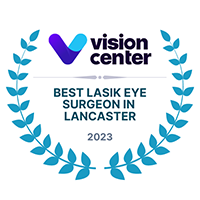Photorefractive keratectomy is a very popular surgery for those who can’t get LASIK. PRK is like LASIK, but it’s better for people with thin corneas.
LASIK has a long list of requirements to be a good candidate for the procedure. Some factors include age, pregnancy status, and even the thickness of your corneas.
Thin corneas are a common reason why someone might receive PRK instead of LASIK. But PRK is also not always the right choice for everyone.
You still need to be a good candidate for PRK, which is for your safety. People with the following characteristics will likely not be good PRK candidates. Keep reading to learn who shouldn’t get PRK!
Patients Under the Age of 18
As with LASIK, it’s illegal to perform PRK on children under the age of 18. Patients often need to wait to get PRK until they are in their twenties.
This ensures the eyes have fully developed and won’t change later on. Like with LASIK, PRK isn’t something to get if your eyes could change later on.
Patients with Unstable Vision
Potential patients will need to have a stable prescription for at least a year before PRK.
If their vision is fluctuating, then the surgery could be useless within a matter of months. Don’t rush and try to undergo a surgery like PRK if your vision keeps fluctuating.
Patients with Eye Issues
Patients with diseases like keratoconus or glaucoma will not be candidates for PRK. If you have scarring from eye injuries or botched eye surgeries you also are likely to not be a candidate.
Eye issues are likely to make you unable to undergo any vision procedures.
Patients with Other Medical Problems
Auto-immune diseases, diabetes, arthritis and collagen vascular disease can interfere with healing. The use of steroids or certain other medications can also make it harder to heal after PRK.
If you have any of these problems or use these medications, you’re not a likely PRK candidate. If you stop using the medication, you still can’t get PRK for another 6 months.
This is to make sure you’ve completely healed before undergoing the procedure. You may think that being diabetic wouldn’t make you eligible for PRK, but it depends. If your blood sugar is under control, you could be a good candidate for PRK.
Pregnant Patients
Pregnancy hormones can alter your vision. PRK requires the recipient to have stable vision to be safe. When you’re pregnant, your vision will likely fluctuate.
If you want the best results, wait to get PRK until after nursing. By this time, any hormones or vision changes should have stopped.
All in all, the requirements for PRK are like those for LASIK. For patients who don’t qualify for LASIK, PRK provides vision correction safely!
Wondering if you could be a candidate for LASIK or PRK? Schedule a consultation at Chesen Laser Eye Center in West Reading, PA today! It’s your time to live a life that’s free from the constraints of glasses and contacts!






